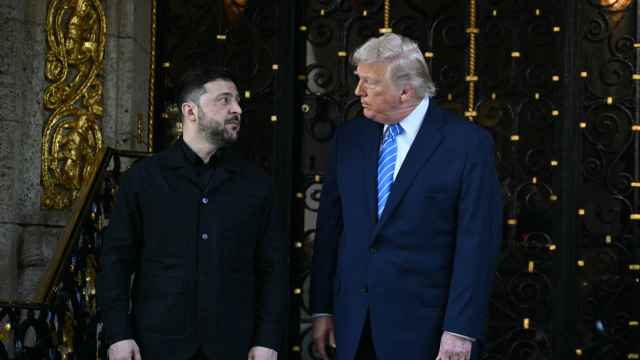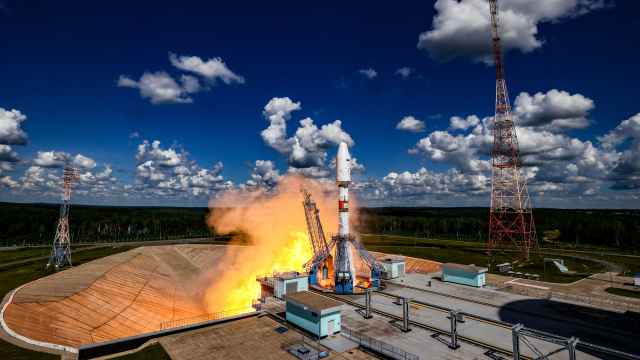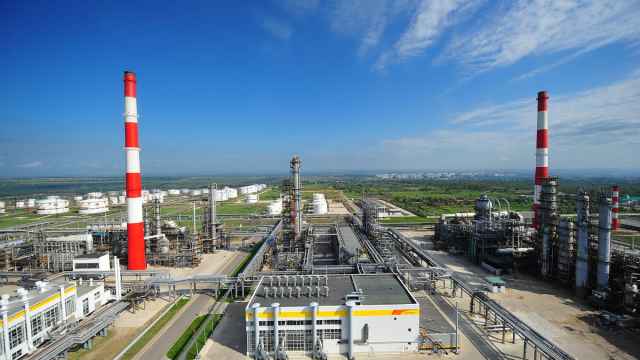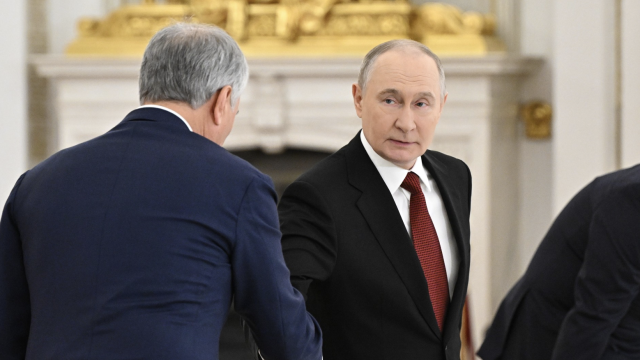Russia needs to accept wider deficits in the next two decades if it commits to overhauling the economy to prevent a reliance on the dominant oil and gas industry, according to ministry development proposal to 2030.
"We're showing what's at stake," Deputy Economic Development Minister Andrei Klepach told reporters in Moscow. "You can have a balanced budget, but you'll have to sacrifice something."
The economy would grow an average 4.4 percent a year through 2030 with deficits of between 1.5 percent and 2 percent of gross domestic product, Klepach said late last week. Under a conservative, energy-focused development plan, expansion would average no more than 3.6 percent, allowing the budget to balance after 2015, he said.
Prime Minister Vladimir Putin, who won a six-year term in the Kremlin in the March 4 election, guided the economy to an average growth rate of 7 percent during his first two presidential stints from 2000 to 2008. The world's largest energy exporter can no longer count on oil and gas to jumpstart expansion, Klepach said. Putin is scheduled to consider the two proposals later this month.
Russia reduced its forecast for economic growth this year even after increasing its projection for Urals crude, the country's main export earner, to average $115 a barrel in 2012. GDP expanded 4.3 percent and returned to output levels last reached before a 7.8 percent contraction in 2009.
"We showed the consequences for economic growth and continued imbalances in terms of things like salaries," Klepach said. "And we showed another option, where the deficit is retained but we solve those problems. And it really offers a jolt in terms of the pace of growth and the quality of life."
Rising prices and output during the past decade meant oil and gas were contributing 4 percentage points to the average 7 percent growth, Klepach said. Given forecasts of stagnant oil production and "modest" increases in gas output and exports, the industry can now only provide 1.5 to 2 percentage points of growth, he said.
The Economic Development Ministry submitted the draft long-term forecast to the government, which is scheduled to consider it at a meeting April 26, Klepach said. The document, once approved, would serve as the basis for long-term budget planning, he said.
Putin said Russia safeguarded its sovereignty during the economic crisis after 2008 because of its low debt level, even as some European states were forced to cede powers to supranational bodies.
Russia's state debt relative to economic output is less than 10 percent, compared with a ratio of almost 90 percent in the euro area, and 27 percent in China, Putin said. The government may run deficits of between 1.5 percent and 2 percent through 2030 without pushing the figure above 25 percent, Klepach said.
"The innovative scenario supposes significant growth of private and particularly state spending on science, education, health care and transportation infrastructure," Klepach said. "That will require a budget deficit given stable or even slightly declining budget revenue."
The oil and gas industry accounts for about 20 percent of Russia's economy and would be halved to about 10 percent by 2030 under the innovative scenario, according to the plan.
Industries such as higher education, advanced medicine, research, communications and information technology would represent about 20 percent by 2030, from about 11 percent now, according to Klepach.
The growth model would also mean substituting imports with domestic alternatives and boosting noncommodity exports, he said. Machinery sales abroad would account for 20 percent to 22 percent of all exports by 2030, compared with less than 6 percent now, he said.
Russia's GDP per capita in 2005 dollars was about $16,000 according to International Monetary Fund data, Klepach said. The figure would rise to $22,000 in 2020 and $37,000 by 2030 in terms of purchasing power parity, he said.
That would bring Russia from about 48 percent of the European level now to 67 percent in 2020 and as much as 90 percent to 95 percent by 2030, he said. The middle class, comprising families with monthly income six times the subsistence level, or about $1,100 now, as well as a car and a home, would rise to about 37 percent of Russia in 2020 and "almost half" in 2030, from about 22 percent now, he said.
While the innovative scenario requires an active role for the state, including investment in transportation infrastructure, Russia's private industry will have to undergo a "certain revolution" to even out spending on public and private research after 2020, Klepach said.
Research and development spending in Russia accounts for about 1.2 percent of GDP currently, which is "significantly lagging behind even China, where it's 1.8 percent," he said.
The government accounts for 0.9 percentage points of the total, Klepach said. Corporate investors including state-run Gazprom, Rosneft and defense producer Uralvagonzavod, as well as PepsiCo unit Wimm-Bill-Dann together spend 0.3 percent of GDP on research.
"There will need to be a revolution in people's minds," he said. "There'll need to be a truly new Russian corporate elite."
The two scenarios forecast oil prices rising steadily to $158 a barrel in 2030 and averaging $127 over the period. In 2010 prices, Urals would only reach $106 in 2030 and average $101, according to the estimate.
Under the innovative scenario, net private capital outflows would average 1.4 percent of GDP through 2030, compared with 0.2 percent under the conservative option.
"We're now approaching a new phase where we don't see a significant increase in production or export of hydrocarbons," Klepach said. "Regardless of whether it's this government or the new government, this is a choice that has to be made."
A Message from The Moscow Times:
Dear readers,
We are facing unprecedented challenges. Russia's Prosecutor General's Office has designated The Moscow Times as an "undesirable" organization, criminalizing our work and putting our staff at risk of prosecution. This follows our earlier unjust labeling as a "foreign agent."
These actions are direct attempts to silence independent journalism in Russia. The authorities claim our work "discredits the decisions of the Russian leadership." We see things differently: we strive to provide accurate, unbiased reporting on Russia.
We, the journalists of The Moscow Times, refuse to be silenced. But to continue our work, we need your help.
Your support, no matter how small, makes a world of difference. If you can, please support us monthly starting from just $2. It's quick to set up, and every contribution makes a significant impact.
By supporting The Moscow Times, you're defending open, independent journalism in the face of repression. Thank you for standing with us.
Remind me later.





